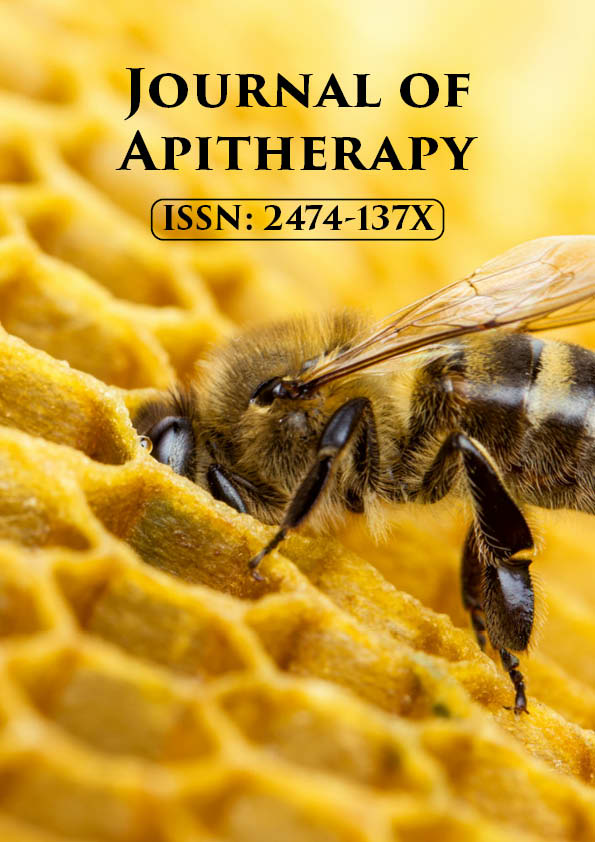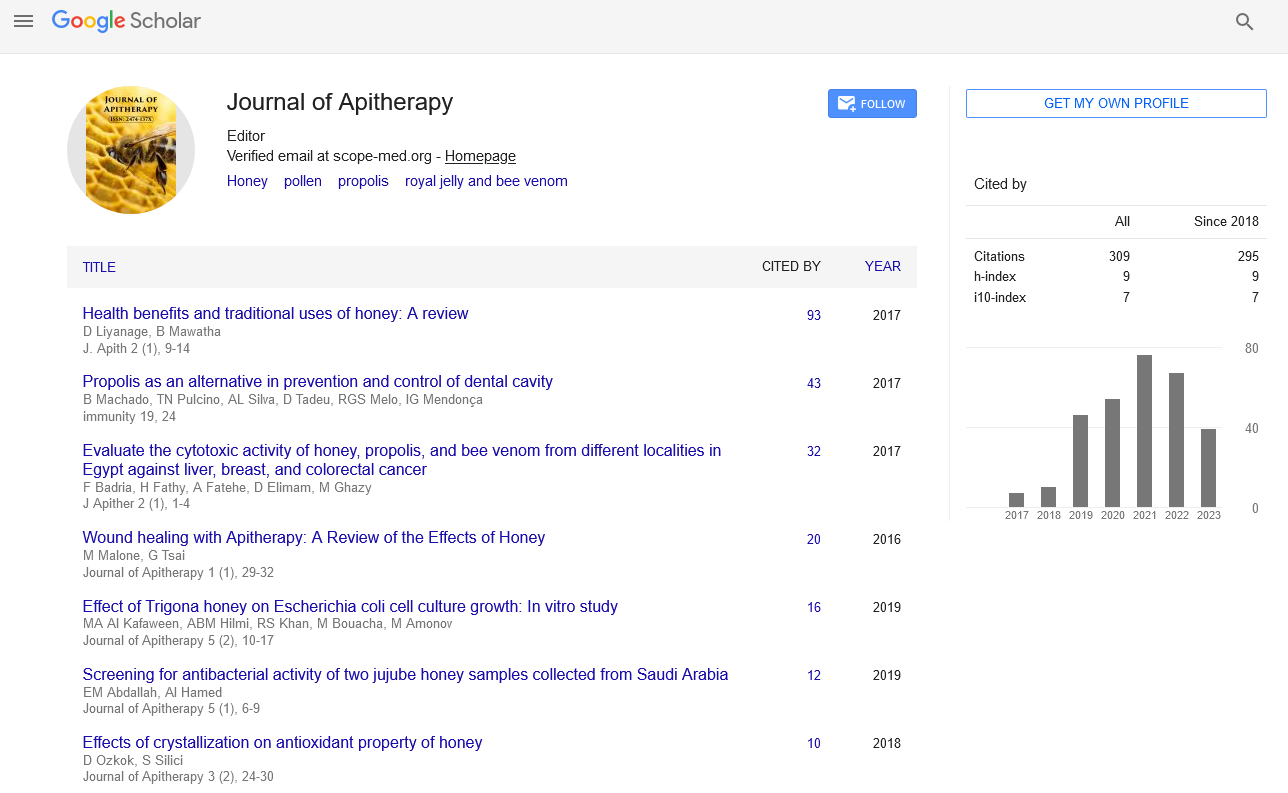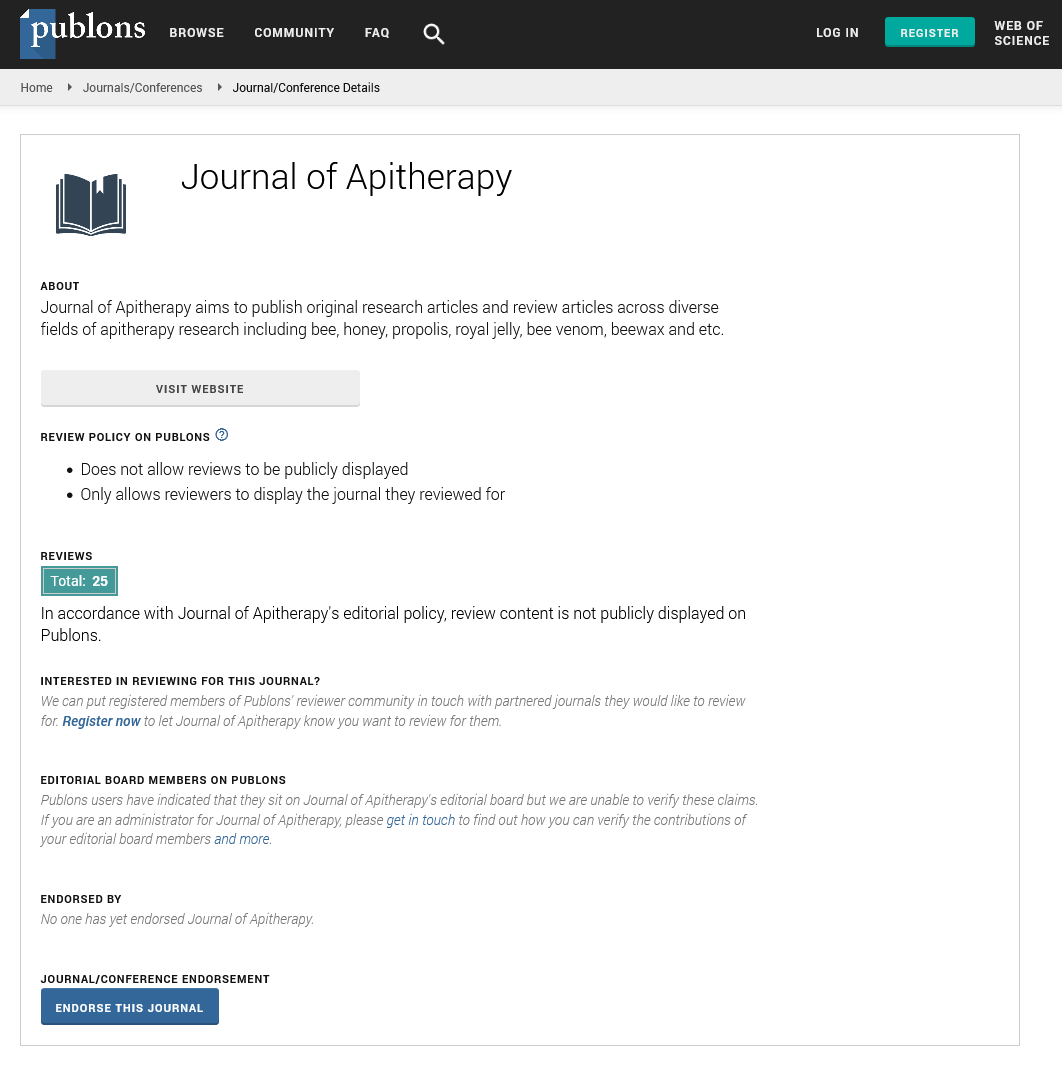Evaluate the cytotoxic activity of honey, propolis, and bee venom from different localities in Egypt against liver, breast, and colorectal cancer
Abstract
Farid Abd-Elrehim Abd-elaziz Badria, Hassan Mohamed Fathy, Ashraf Sherif Fatehe, Diaaeldin Mohamed Abdelkawi Elimam, Mohamed Ghazy Mohamed Ghazy
Introduction: Cancer is a large group of disorders characterized by uncontrolled cellular proliferation. It is one of the most devastating diseases all over the world. Recently, there is an increased interest in the clinical use of natural products as a safe, efficient, and economic therapeutic alternative. Honey bee products therapy, apitherapy, was used to control various diseases including cancer. Objectives: The primary objective of this study was to screen potential cytotoxic effects of honey bee products against different cancer types. Materials and Methods: Samples of honey, venom and propolis were collected from different Egyptian localities with different techniques and tested by MTT cell-based assay against liver (HeP-G2), breast (MCF-7), and colorectal (Caco-2) cancer cell lines. Results: The results showed that, Italian dissected method-bee venom was the most active among all the tested samples against Hep-G2 (93.92%), Caco-2 (93.92%) and MCF-7 (90.17%). However, Libyan propolis proved to be most active among all tested propolis samples. On the other hand, all tested honey samples showed non-remarkable activities except Asyut-clover honey (49.84% against Caco-2 cell line). Conclusion: The results showed that, bee venom, propolis and honey are interesting agents that have valuable activities against Hep-G2, Caco-2 and MCF-7 with bee venom being the most effective agent that might be incorporated in cancer remedy regimens after further studies.
https://bluecruiseturkey.co
https://bestbluecruises.com
https://marmarisboatcharter.com
https://bodrumboatcharter.com
https://fethiyeboatcharter.com
https://gocekboatcharter.com
https://ssplusyachting.com







